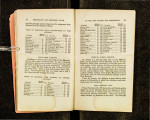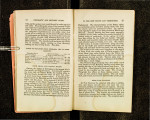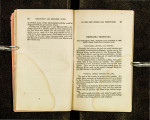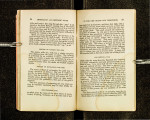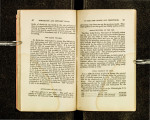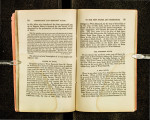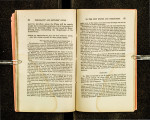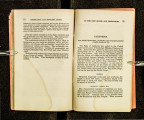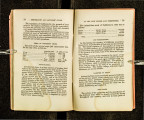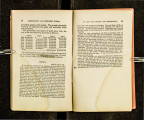| OCR Text |
Show .. 8 IMMIGRANTS' AND SETTLERS' GUIDE hence the complaints which we AO often hear. This brings me, somewhat abruptly, to a statement of WHO SHOULD NOT GO. First, those who have good, or even moderately good homes, and certain means of a comfortable living, should not go. Let such remember the old adage that "A bird in the hand is worth two in the bush," and that honest toil, with a certainty of adequate remuneration at home, is preferable to hardship, and often danger, in a new country, with contingent or uncertain riches in the future. Secondly, no man who is so indolent or so indisposed to labor (for the purposes of emigration these terms are synonymous) as to have always failed at home to obtain an honest living, should ever think of making one by emigrating. Lastly, no one without sufficient energy, determination of character, and physical strength to enable him to wear through the first year of his life in his adopted home, whether it be in California or in Nebraska, prospecting for gold nuggets or splitting fence-rails, ought to go; and it is precisely because so many of each of these classes of people have emigrated that the average of success among emigrants in our trans-Mississippi territory has been so low. Remember that the reality is often very different from the picture " your fancy painted." Have a good reason for breaking the old moorings before looking for better ones ; and when you start on a long trip to the far West, do not cherish the idea too often entertained, that it is to be ·but a holiday excursion, soon to be over, when you will tumble into some rich gulch or placer, only to come forth laden with stores of gold. To succeed in any new field of labor, great industry and perseverance are required, and the emigrant to the Great West will secure his fortune only through the continued exercise of these virtues. Let " let well enough alone " be your motto when you are comfortably situated, and do not credit every story or rumor that is current. . . TO THE NEW STATES AND TERRITORIES. 9 Few who properly appreciate these truths, and go fully determined " to fight it out on this line if it takes all sun1mer," and winter, too, will fail to prosper. THE ROUTE. Having made up your mind that you are a fit subject for en1igration and are determined to try it, the next thing to be done is oo select a route and a means of conveyance.* This important matter will dou Ltless be more o.r less i~fiuenced by the caprice or prejudice of the emigrant hunself, and the amount of means at his command. By reference to a map it will be seen that there are several routes from the East to the West. The New York and Erie Railroad, from City of New Y or){, viti Binghampton, Elmira, Hornellsvi1le, to Dunkirk or Buffalo, where it connects with the Lake Shore Railroad, p~ssing along the South Shore of Lake Erie, through Ene and Cleveland to Toledo, and there with the Michigan Southern Railroad, terminating at Chicago distance of 95 8 miles. ' The Hudson River Railroad to Albany, and thence hy thP. New York Central Railroad through Utica, Syracuse, Canandaigua, Rochester, Batavia, to Buffalo and Ni~~ga·ra Falls, 348 miles ; at which places it conne~ ts With the Lake Shore and lVIichigan Southern Railroad, and the Great Western and Michigan Central Railroad to Chicago (Canada). rrhe distance from N e"v York to Chicago by the former is 946 n1iles and by the latter route 986 miles. ' The Pennsylvania Central Railroad from Philadelphia, viti ~arrisbur~ and Altoona, to Pittsburg, \Vhere it con.nects With the Pittsburg, Fort Wayne and Chicago Railroad to Chicago, a distance of 824 miles; also with the Pennsylvania Central and Zenia Rail way to Cincin- * The emigrant is presumed to have selected his own destination. I~ he has not, an attentiv~ perusal of the following pages will assist h1m to a proper choice. 1* |











